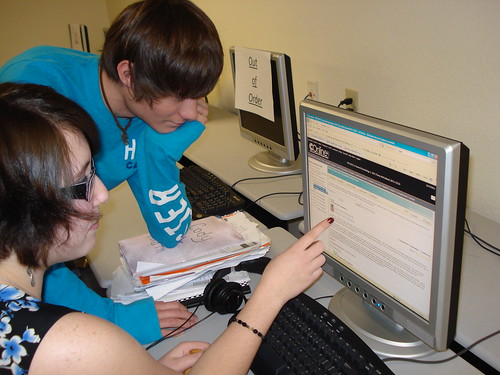Statistics from 2010 tell a now common story: Students are turning to online classes in high numbers. 6.1 students took at least one online course during the fall of 2010. As online courses continue to grow in popularity, so does the instance of cheating. From using textbooks to collaborating with one another, students are finding ways to buck the system and it’s becoming a very real problem. Here’s what colleges are doing to weed out dishonest students in the virtual classroom:

1.Keystroke Measurement
Massive open online courses, or MOOC, are gaining popularity. These free courses are allowing students to take classes that they are interested in, though the class may not fit in with their major course of study. Coursera, the most popular provider of MOOCs, has established a keystroke system to combat cheating.
Students type Coursera’s honor code during the enrollment process. Typing speed, error patterns and the length of depression on specific keys is measured. Students type the same phrase at the beginning of each session and keystrokes are measured again. The goal is to stop student’s from having another person complete their work or take their exams.
2.Question Frequency
In some MOOCs, classes are structured in such a way that questions are answered every few minutes. Instead of relying on papers and exams, instructors rely on student participation as a way to gauge progress and understanding. Cheating is more difficult to accomplish when courses are delivered in this manner.

3.Proctors
Part of the draw of online courses is the ability to take a class completely online. The flexibility is attractive to millions of students. In an effort to curb cheating, some colleges are requiring a trip to campus, even for online learners. Proctored tests and assignments are essentially those that are completed under supervision. Students must complete certain coursework on campus, under the direct supervision of a proctor. Other colleges require that students find their own proctor who must sign official forms that are submitted with the exam or assignment.
4.No Grade
Most students don’t cheat for the thrill of it, but in the pursuit of a passing grade. To curtail this, some colleges are eliminating the grade from online courses. Instead, students receiving a pass or a fail or receive a grade that is not factored into the GPA. Students receive credit for the course in the form of hours completed, but the grade is taken out of the equation. A lack of a formal grade is meant to remove the temptation to cheat in order to be successful.
There is no denying that cheating and plagiarism are easier to pull off in the virtual learning environment. While some students are honest no matter the setting, others will do anything they can to pass a course. The days of taking an online course for an easy A are coming to an end. As more colleges take steps to put an end to academic dishonesty in the online environment, virtual courses are becoming as challenging to complete as their traditional counterparts.
Writer Brett Harris is an avid blogger. Interested in an online degree? Check out the best online colleges.



























